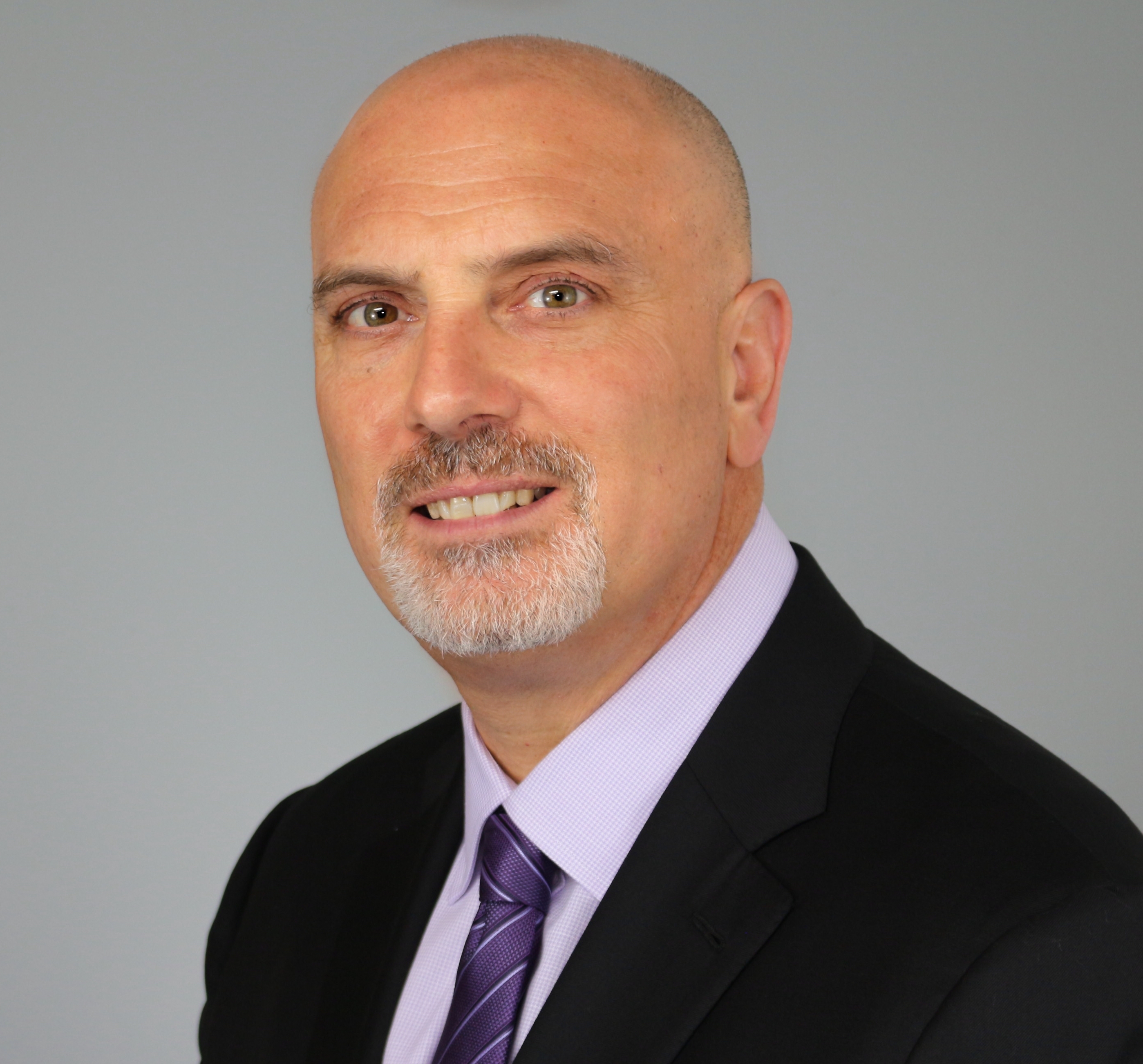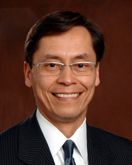
Dwight Egan is a Co-Founder of Co-Diagnostics, Inc., and is the company’s Chief Executive Officer. He is a visionary entrepreneur with years of experience taking companies from their inception to become successfully traded public companies. Prior to Co-Diagnostics, Mr. Egan co-founded Broadcast International, Inc. — BI — where he served as President, Chief Executive Officer and Chairman of the board. He was appointed board member of Data Broadcasting Corporation when BI was acquired by DBC in 1995. In June 1988, he was appointed Executive Vice President of Marketing for Data Broadcasting Corporation.
In this exclusive 4,390 word interview with the Wall Street Transcript, Mr. Egan reveals the near term product launches from his company and his “go to market” strategy for delivering sales.
“Primer-dimers occur in molecular diagnostic tests when the primers and probes that are supposed to find a target bacteria or virus instead find themselves and then multiply in a polymerase chain reaction process, or PCR, and cause a problem that creates false readings. The primers and probes find themselves rather than finding targets. In the way our molecule is structured, we have essentially eliminated, for all practical purposes, primer-dimers. This opens up some very unique applications for not just infectious disease but also for liquid biopsy for cancer detection, and in agriculture, food and water safety, and animal medicine. It can be applied to PCR and also next-gen sequencing.”
The development of the liquid biopsy test will spur low cost testing in many geographies:”…With our ability to multiplex the reaction so that we can test for several things at the same time, you have some really unique possibilities. You can look for multiple cancers, for instance, as in free-circulating DNA fragments in the blood sample or whole cells from cancerous tumors also circulating in the blood. ”
The tests will cover a wide variety of high impact tests:
“We have a number of tests that are being introduced in the next couple of quarters in many places of the world. They include things like tuberculosis, Zika, hepatitis B, hepatitis C, human papillomavirus, malaria and HIV. We will continue to produce additional tests over the next 24 or 36 months so that ultimately we would have, I would say, in the neighborhood of a couple of dozen tests available in our portfolio. That would include tests for sexually transmitted diseases like gonorrhea, chlamydia and syphilis, and hospital-acquired diseases like CRE or MRSA or C. diff. Our menu will look very much like the menu that you see from other prominent purveyors of these types of molecular tests.”
Read the entire 4390 word interview with Dwight Egan and learn how he will develop his company.


Samuel Masucci is Chief Executive Officer and Founder of Exchange Traded Managers Group, LLC. Mr. Masucci has more than 25 years’ experience in investment banking, structured product development, sales and trading. In the last five years, he founded ETF Managers Group — ETFMG — to revolutionize the exchange-traded fund marketplace. Mr. Masucci ‘s leadership has already led to the successful launch of 14 funds and $2 billion in assets. His unique approach to the ETF go-to-market process and post-launch management is setting the bar in this quickly evolving industry. Prior to ETFMG, he has held senior positions at Bear Stearns, UBS, SBC Warburg and Merrill Lynch, and has a proven track record of creating, building and managing businesses for the issuance, sales and trading of: ETFs, index products, commodity products, hedge funds, ABS and OTC structured products in the U.S. and Europe.
Jason Wilson is President of Budding Equity Asset Management, Inc., and Partner of ETFMG Alternative Harvest ETF. As President of Budding Equity Asset Management, Inc., Mr. Wilson is responsible for all facets of its business, including the development of cannabis-focused investment themes. He brings a unique blend of business acumen, experience and a track record of bringing hard-to-access asset classes to market.
Together, these two experienced money managers and financial engineers have crafted an innovative method for investing in the legal Cannabis sector. In this 3,178 word exclusive interview in the Wall Street Transcript, they detail how the individual investor can participate.
Jason Wilson puts it this way: “The aim of the Alternative Harvest Index is to provide exposure to the growing cannabis sector. What the index does is looks at the universe of stocks of companies globally to find those that have their primary revenues that are generated with respect to the production of cannabis or cannabis-related products. That is our global filter, if you will. From there, we use various criteria to determine what should be included in the index. On a quarterly basis, we screen all these stocks for daily liquidity, trading volume and market cap.”
Mr. Wilson details the weightings of the index as well as the interesting aspects of some of the key stocks represented in the fund: “A company is considered a primary company and receives a higher weighting if it is primarily engaged in the production of cannabis or cannabis-related products. Those companies end up getting a higher weighting versus companies that have an ancillary focus on the cannabis economy. Companies with a higher weighting include companies that grow medicinal marijuana outside of the U.S. or produce cannabis-based pharmaceuticals, such as GW Pharma (NASDAQ:GWPH), which is a biopharmaceutical company based in the U.K.”
Samuel Masucci points out that “The train has left the station. The general public for the most part, while they may have differences of opinion when it comes to recreational use, is clearly approving of it on the medical side.”
To read the full 3,178 word interview visit the Wall Street Transcript.

Brian Marckx, CFA, is the Director of Research and Senior Medical Device/Diagnostics Analyst at Zacks Investment Research. Mr. Marckx covers small and microcap medical device and diagnostic companies with a focus on development-stage companies with novel and emerging technologies, as well as already established names still flying under the radar. Prior to joining Zacks Investment Research, Mr. Marckx worked as a high yield bond analyst on Wachovia Securities’ institutional trading desks, where he specialized in the health care and industrials industries. Prior to that he was an analyst in corporate finance at First Union National Bank. Mr. Marckx has been quoted in The Wall Street Journal, Barron’s, Bloomberg Businessweek and Kiplinger’s. His work has also been cited in various market studies and working papers including those from Massachusetts Institute of Technology, Deloitte & Touche and Pharmaceutical Manufacturing. He graduated with a bachelor’s degree in finance from St. John Fisher College, and received his master’s degree in business administration from Wake Forest University.
The exclusive interview with Brian Marckx details his current picks in the medical sector.
“…now Republicans held the executive seat as well as both houses of Congress, more importantly, Trump had indicated that he was pro-industry and would do things that would likely benefit med tech. He has done some things that have been positive, with one being a delaying of re-implementation of the medical device tax. That tax had been criticized as a real impediment to innovation within the industry. And while not everything that he has done has been well-received, such as increasing some user fees, I think on a net basis, med tech is better off with Trump in the White House. The appointment of Dr. Scott Gottlieb as FDA Commissioner also has the potential to be a positive influence to growth and innovation in med tech.”
One particular favorite is a colon cancer test provider.
“I cover a company called VolitionRX (NYSEAMERICAN:VNRX). It falls under the category of what has been called a liquid or blood biopsy, meaning a non-invasive diagnostic for cancer. VolitionRx’s NuQ technology looks for nucleosomes, which are bits of DNA and histone proteins and essentially act as markers for cancer cells. The main focus right now is colorectal cancer which VolitionRx’s test has shown to be have relatively high accuracy in detecting, even at early stages. The colorectal cancer diagnostic space is pretty fragmented. In the U.S., colonoscopy is the gold standard, but it is a relatively invasive and expensive procedure.”
To get the full interview and all the medical sector picks from Brian Marckx, read them at the Wall Street Transcript.

Robert J. McWhirter, CFA, is President of Selective Asset Management, Inc. Prior to establishing Selective Asset Management, Inc., Mr. McWhirter was the Vice President and Portfolio Manager at First Asset Investment Management Inc. and RBC Global Investment Management Inc., where he worked for more than 20 years, including predecessor firm, RBC Dominion Securities Investment Management. He managed approximately $2.25 billion in the Canadian high-technology sector of the Royal Bank’s Canadian Equity Mutual Funds. Mr. McWhirter is a member of the Canadian Society of Technical Analysts and the CFA Society Toronto.
In this exclusive interview with the Wall Street Transcript, Robert McWhirter discloses his investing methodology and top picks. “For over four years, I have been running a Canadian dividend strategy for family money. To June 30, 2018, the strategy was up 51.1% after costs versus the S&P/TSX Total Return Index, which was up 20.9% — simple return. Since February 1 of 2018, clients can invest in the strategy on a segregated basis with Margaret Samuel at Enriched Investing. I used to work with Margaret at Royal Bank Investment Management.”
His investing algorithm comes up with some interesting picks:
“An example of a well-run Canadian company is Dollarama (TSE:DOL), which is like Dollar General (NYSE:DG) in the U.S. Most of the items are $4 or less. Dollarama carries a significant amount of impulse and seasonal items. Dollarama’s recent earnings were slightly below expectations because the weather was cold, so people didn’t buy pool toys or gardening tools. The decline in sales in the seasonal items in April improved in May. Dollarama continues to have an extremely high return on equity and continues to grow organically. A significant change within the last year was DOL began accepting credit cards. As a result, their average ticket size, meaning the average basket of goods people buy, grew significantly. Average same-store sales also picked up significantly.”
To read the full 2,637 word interview go to the Wall Street Transcript.

Hans C. Mosesmann is a Managing Director at Rosenblatt Securities Inc. Prior to joining the company, Mr. Mosesmann was an electrical engineer who spent a decade working at chipmakers Texas Instruments and Advanced Micro Devices before moving to Wall Street in 1996. Mr. Mosesmann spent a decade at Raymond James & Associates, Inc. covering the semiconductor industry. Prior to that, he worked as an Equity Analyst for several boutiques including Needham & Company, LLC, Volpe Brown Whelan & Co. and Soundview Securities, as well as Prudential Securities. Mr. Mosesmann holds a Bachelor of Science in electrical engineering from the University of Florida and an MBA in finance from Loyola University of Maryland.
In this exclusive interview with the Wall Street Transcript, this award winning Semiconductor stock wizard picks the winners and loser over the next few years:
“…The secular trends that we saw 20 years ago, where the PC market was driving demand, or 10 years ago, where the wireless market was driving overall semiconductor demand, have changed. The PC market obviously has matured and has commenced its secular decline. The wireless markets, after a period of hyper growth have kind of flattened out. There are still some segments that are growing on the higher end of the smartphone market…Going forward, there are new markets that are emerging or are currently around that are driving demand, and those are the data center markets and hyperscale cloud.”
Hans Mosesmann sees a big shift in market share among the semiconductor giants:
“For example, Intel (INTC) has nearly 100% of the server market, and AMD (AMD) has nearly zero. History would suggest that when AMD has a good product, and they do today I think, they can capture up to 25% of the market, a market that today is close to $20 billion. So a company like AMD could capture billions of dollars in market share just on microprocessors in two to three years.”
To get the full report on which semiconductor stocks to buy, read the entire interview at the Wall Street Transcript.

Gregory L. Waters joined Integrated Device Technology Inc. in January 2014 as President, CEO and a member of the board of directors. Prior to IDT, he served from 2003 to 2012 as Executive Vice President and General Manager for Skyworks Solutions, where he led the company’s wireless businesses to a decisive industry leadership position. Before Skyworks, he held several executive business unit positions at Agere Systems, where his responsibilities included M&A and I.P. licensing, and where he played a key role in the company’s successful IPO. Mr. Waters began his career at Texas Instruments, serving in a variety of management positions in sales, customer design centers and business unit management.
Mr. Waters believes the semiconductor industry’s future will be led by companies that develop innovative system-level solutions that are delivered as semiconductors. Solving problems that are important to industry or society, and delivering those solutions in a way that can be used broadly, is not only great business but also attracts the best and brightest in our industry. Mr. Waters believes that the semiconductor industry’s best days are in front of us but that we have to create it. Today’s largest technology markets were created by leaders from a generation ago. He holds a B.S. in engineering from the University of Vermont and an M.S. in computer science from Northeastern University. His technical education has focused on real-time embedded processing, communications systems and machine learning. Mr. Waters currently serves on the board of directors of the Semiconductor Industry Association, or SIA.
In this exclusive 2,419 word interview with the Wall Street Transcript, Mr. Waters steps us through his business plan to create the tremendous upside opportunity for Integrated Device Technology.
“We have been on a journey to turn Integrated Device Technology into a genuine industry leader in the field of analog/mixed-signal semiconductors. These analog/mixed-signal devices provide the interface between nature, which is analog, and the digital world. The timing of the interview is a good one because we just announced our earnings for our fiscal year ending in March. We exceeded the $830 million revenue target that we had set in early calendar 2017 and closed fiscal 2018 at about $843 million of revenue. We are now growing across all of our target market segments and across nearly all of our major product lines. We believe we are entering a period of sustained growth that is well above market growth rates.”
To read the complete interview with Gregory Waters of Integrated Device Technology, visit the Wall Street Transcript.


Nels Wangensteen is the Co-Founder, Managing Partner and Portfolio Manager at MayTech Global Investments. Before co-founding MayTech in 2017, Mr. Wangensteen was a Principal and Portfolio Manager at Integre Asset Management, where he created the Global Growth Strategy in 2008. Earlier, he was a Portfolio Manager at Neuberger Berman’s Private Asset Management Group from 1999 to 2008 and at Ingalls & Snyder from 1998 to 1999. He also was a vice-president at the Industrial Bank of Japan and was an analyst at the Bank of Montreal. Mr. Wangensteen began his career at Coopers & Lybrand. Mr. Wangensteen is a trustee of the Panaphil Foundation and the Uphill Foundation. He received a B.A. in political science from Colgate University and an MBA from New York University.
Ingrid Yin is also a Co-Founder, Managing Partner and Portfolio Manager at MayTech Global Investments. Prior to co-founding MayTech, Ms. Yin was the Managing Director of China Equity Research at Oppenheimer & Co. Previously, she led China research as a senior research analyst at Brean Capital, an Asian equity analyst at Wellington Management and a global healthcare specialist at Sirios Capital Management and Jefferies Asset Management. Before her career in finance, Ms. Yin was a research fellow and senior research scientist at Memorial Sloan-Kettering Cancer Center. She is a board member of Gilda’s Club and received a B.S. from Beijing University, an MBA from MIT Sloan School of Management and a Ph.D. in biochemistry from SUNY-Stony Brook.
In this exclusive interview with the Wall Street Transcript, Dr. Yin and Mr. Wangensteen discuss the type of stocks they like to buy: “We run one strategy, a global growth strategy, which is really benefiting from big trends we see driving the global economy. These trends center around advancements in information technology. In fact, there is a couple of billion new consumers coming into the global economy and demographic changes, largely aging populations in much of the world.”
Dr. Ingrid Yin uses her PhD in biochemistry to find some real stock winners: “Illumina is a leader in genome sequencing. This company has significantly lowered the cost of whole-genome sequencing, and its products are used throughout the world for population and genome studies as well as in personalized and preventative medicine. So this is just at the very beginning of how this technology could be utilized and improve the health of human beings. Even though the company has done really well and growing at a rapid pace, we really think the penetration and the adoption of this technology will happen in the years to come.”
To read the full interview with Dr. Yin and Mr. Wangensteen, visit the Wall Street Transcript.

Thomas J. Sudyka Jr., CFA, is President and a Portfolio Manager at Lawson Kroeker Investment Management, Inc. He is responsible for ensuring the firm’s adherence to its core investment philosophy, managing portfolios and communicating closely with clients. Mr. Sudyka was a portfolio manager for several global investment management companies prior to joining Lawson Kroeker in 1999. His investment decisions are guided by his 30-plus years of investment experience.
In this exclusive 3,964 word interview with the Wall Street Transcript, Mr. Sudyka describes his bespoke investment management philosophy and picks out some winning stocks and strategies.
“…One of the things that attracted me originally to Lawson Kroeker when I came here almost 20 years ago now. It’s a fundamental approach to investing, but not tied to the traditional growth versus value or small versus large. We have a general belief that you should try to identify and find the very best investments in whichever sector they’re located, rather than try to pigeonhole ourselves as a small-cap value manager or a large-cap growth manager…”
Finding a diamond in Texas is one of Thomas J. Sudyka’s suggestions, and his pick is accounting analyst’s dream come true: “If you look at a smaller-cap company, it’s one that we’ve liked for a long time, Texas Pacific Land Trust (NYSE:TPL). It’s a very unique company, it’s about a $5 billion-market-cap company. It had a tremendous run, so I might be a little cautious here, but when I think the big picture, what they are is a landowner in Texas, primarily West Texas, in the Permian Basin…”
Caution among investors is growing, according to the Lawson Kroeker portfolio manager, particularly among investors who have been around for a few economic cycles: “The foundation boards we’re dealing with, probably for the last 18 months, have been more concerned with overvaluations of the equity markets, stretched performance. We’ve had a very long run of very good performance, and they’re beginning to be concerned with — historically, at this point, you’d be moving more money toward your bond sides of your portfolio in preparation for some kind of potential decline in the stock market. But since their forward-looking returns on bonds aren’t great, they’re all struggling with what to do with that side of a portfolio. Nobody — none of the boards I’m dealing with at least — really want us to go and try to time it in cash.”
Read the entire detailed 3,964 word interview at the Wall Street Transcript.

In the late 1960’s, everyone knew that Dr. Banner was belted by gamma rays, and those turned him into the Hulk. A scientist caught in a lab accident was altered into a huge powerful monster, almost losing his humanity.
The accidental monster was impervious to many of the human weaknesses we take for granted and accept as our destiny.
But should we? From the beginning of human records the death rate from bacterial infection was huge and life expectancy even in the most developed economies was 47 years old. Penicillin and other antibiotics cured that, along with countless other infections. Smallpox erased entire civilizations from history. Vaccinations have pushed that disease to the dustbin of history. No parent today should fear their child’s death or disability from polio, rubella, whooping cough, or smallpox in the United States.
Now whole new categories of disease have become treatable — through a range of medicines that use virus ships to infect humans with genetically enhanced cargoes that change the genetic code to eliminate the disease. A real silver bullet.
Luxturna works by delivering a normal copy of the RPE65 gene directly to retinal cells. These retinal cells then produce the normal protein that converts light to an electrical signal in the retina to restore patient’s vision loss. Luxturna uses a naturally occurring adeno-associated virus, which has been modified using recombinant DNA techniques, as a vehicle to deliver the normal human RPE65 gene to the retinal cells to restore vision.
“The approval of Luxturna further opens the door to the potential of gene therapies,” said Peter Marks, M.D., Ph.D., director of the FDA’s Center for Biologics Evaluation and Research (CBER). “Patients with biallelic RPE65 mutation-associated retinal dystrophy now have a chance for improved vision, where little hope previously existed.”
In other words, a blind person is injected with a new genetic fix that cures blindness.
These advances have been enabled by the power of gene sequencing through incredibly powerful computer chips, a global scientific community that relentlessly pursued these treatments despite incredibly complex biological challenges, and venture capital and public stock investors that have risked hard earned capital in these fantastic biochemistry experients.
These experiments are paying off.
Review the latest about these publicly traded companies:
Luxturna: Spark Therapeutics

Matthew Watson, CFA, CPA, is a Portfolio Manager at James Investment Research, Inc. Mr. Watson graduated from Wright State University in 2007, where he earned a double Bachelor of Science in accounting and finance. He earned his Master of Accountancy in 2008. He is a Certified Public Accountant and has also earned the Chartered Financial Analyst designation. Mr. Watson has been with James Advantage Funds since 2007 and he is currently a member of the Investment Committee.
In this exclusive interview with the Wall Street Transcript, Matthew Watson outlines his current portfolio and the investment process that created it.
“First and foremost, we are known for capital preservation. That is what our firm has been founded on and what we have done for over 45 years for our clients. The Golden Rainbow Fund was one of the best performing funds in 2008. It was only down around 5.5%, and the stock market was down 37% on the S&P 500. We pride ourselves on capital preservation and don’t think investors appreciate capital preservation today in an environment in which stock markets have been going up for almost 10 years. For the long term, the key is to preserve and grow wealth by not losing it in the first place. Warren Buffett’s rule number one is don’t lose the money, and we believe that wholeheartedly.”
One example of the contrarian nature of Matthew Watson is in the entertainment indusrty sector.
“A stock that has not been doing very well recently, but we own it and has good valuations and good profitability is Viacom (NASDAQ:VIAB). They are a content provider like Netflix (NASDAQ:NFLX). People are willing to pay very, very high multiples of earnings for Netflix. For some reason, they have left Viacom in the dust.”
To get the rest of Matthew Watson’s top picks and pans, read the entire interview in the Wall Street Transcript.